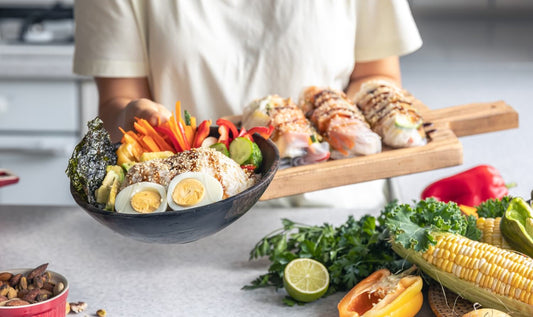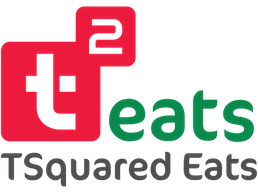Our Blogs

Hydration and Nutrition: Why Water Matters in Y...
The Overlooked Link Between Water and Nutrition When most people think of a “meal plan,” they focus almost exclusively on food: calories, macronutrients, vitamins, and minerals. But hydration is just as essential to nutrition and often overlooked. Water is involved in virtually every physiological process that allows nutrients to be digested, absorbed, transported, and utilised. Inadequate hydration doesn’t just cause thirst or fatigue; it can blunt appetite regulation, slow metabolism, reduce exercise performance, impair cognitive clarity, and even affect nutrient absorption. A comprehensive approach to nutrition must include water, not as an afterthought but as a deliberate, integrated part of the meal plan. What Water Does in the Body Water is far more than a medium for transporting nutrients: It facilitates digestion, allowing enzymes to break down carbohydrates, proteins, and fats efficiently. It helps form saliva and gastric juices, essential for initiating digestion. It maintains blood volume, ensuring nutrients and oxygen are delivered to cells throughout the body. It supports thermoregulation, helping dissipate heat during exercise or in Singapore’s humid climate. It’s a key component of cellular structures and aids in detoxification through the kidneys. Even mild dehydration, as little as 1-2% loss of body weight due to water deficit, is enough to reduce energy levels, impair cognitive performance, and affect physical endurance. The Connection Between Hydration and Appetite Hydration status also directly influences hunger and satiety cues. Research shows that mild dehydration can disrupt normal hunger-satiety signalling, leading to increased appetite and unnecessary food intake. This is partly because thirst is often misinterpreted by the brain as hunger. For individuals following structured meal plans, whether for fat loss, muscle gain, or performance, maintaining hydration supports appetite regulation and helps prevent unnecessary snacking or overeating driven by mistaken thirst cues. Additionally, adequate water intake supports efficient fibre function. Fibre needs water to swell and form gels that promote satiety, improve digestion, and regulate bowel movements. Without enough water, high-fibre diets can backfire, causing bloating or constipation. Also read: 5 Nutrition Mistakes That Are Sabotaging Your Fitness Goals How Much Water Do You Need? Hydration needs are highly individual, influenced by body size, activity levels, diet composition, metabolic rate, and environmental conditions. In Singapore’s hot and humid climate, baseline water requirements are elevated, even for individuals who are relatively sedentary. While the popular “8 glasses a day” is a simple rule of thumb, more precise guidance suggests approximately: 2.7 litres per day for women 3.7 litres per day for men These totals account for all water consumed from beverages and food (with fruits and vegetables typically contributing 20–30% of total intake). For active individuals, fluid needs increase significantly. As a rule of thumb, for every 30 minutes of moderate exercise, an additional 350–500 ml of water may be required to replace sweat losses and maintain optimal hydration. But this is just a starting point. At TSquared, we would emphasise that hydration should match your unique lifestyle and physiology: A strength-training client with a high-protein diet may require more water to support nitrogen excretion. An endurance athlete training outdoors in Singapore’s heat will have significantly greater sweat losses. Someone following a low-carbohydrate diet may need to compensate for reduced water retention from lower glycogen stores. Hydration needs also fluctuate daily based on sleep, alcohol consumption, caffeine intake, stress, and illness, so listening to your body’s signals (thirst, urine colour, energy levels) remains critical. Ultimately, hydration is not a one-size-fits-all prescription. It’s an adaptive requirement that must align with your activity patterns, environment, and nutritional context, just as your meal plan should. How Diet Composition Influences Hydration Needs Certain dietary patterns can increase hydration requirements: High-protein diets: Protein metabolism produces nitrogenous waste (urea), which requires water for excretion via the kidneys. High-fibre diets: As mentioned, fibre draws water into the gut to support digestion and satiety. Low-carb diets: Carbohydrates help retain water via glycogen storage; reducing carbs can cause an initial rapid drop in water weight, necessitating closer hydration management. Even caffeine and alcohol, both mild diuretics, can contribute to net hydration when consumed in moderation as part of the total fluid intake. However, excessive amounts can exacerbate dehydration, especially when combined with Singapore’s tropical heat. Signs You May Be Underhydrated (Even Mildly) Dehydration isn’t always obvious. Common signs include: Fatigue or afternoon energy crashes Headaches Dry skin or lips Reduced focus and alertness Darker urine colour or reduced frequency Muscle cramps during exercise Proactively managing hydration as part of meal planning helps prevent these issues and supports overall well-being. The Role of Water Timing Hydration is most effective when spread throughout the day, not consumed all at once. Before meals: Moderate water intake (~500 ml) can aid digestion and help regulate appetite without diluting gastric juices. During meals: Sipping water with meals is perfectly fine and can help with food breakdown and swallowing. After meals and between meals: Maintaining steady fluid intake keeps metabolism efficient and reduces unnecessary snacking due to misinterpreted thirst. Final Thoughts Hydration and nutrition are two sides of the same coin. A well-designed meal plan doesn’t just account for what you eat, it accounts for what you drink, when you drink it, and how water supports the absorption, metabolism, and utilisation of nutrients. By integrating hydration into daily routines, paying attention to quantity, timing, and individual needs, people can enhance energy, focus, appetite regulation, digestion, and performance, all while supporting sustainable progress toward their health goals. Water isn’t an optional extra. It’s the foundation that makes every part of your nutrition strategy work better.
Hydration and Nutrition: Why Water Matters in Y...
The Overlooked Link Between Water and Nutrition When most people think of a “meal plan,” they focus almost exclusively on food: calories, macronutrients, vitamins, and minerals. But hydration is just as essential to nutrition and often overlooked. Water is involved in virtually every physiological process that allows nutrients to be...

Plant-Based vs. Animal-Based Diets: Finding Wha...
Beyond the Debate: Why the Answer Isn’t Either/Or In today’s nutrition landscape, few topics generate as much debate as plant-based vs. animal-based diets. On one side are advocates for vegan and vegetarian eating, emphasising plant diversity, fibre, and reduced environmental impact. On the other hand, proponents of animal-based diets argue for nutrient density, bioavailability, and ancestral eating patterns. But for most people, especially busy professionals trying to optimise health, performance, and sustainability, the real question isn’t which side to choose. It’s how to structure a diet that works for their body, goals, and lifestyle. At TSquared Eats, we avoid extremes. Our approach is rooted in balance, flexibility, and evidence, supporting clients who thrive on predominantly plant-based diets as well as those who prefer animal proteins, ensuring that either way, meals are nutrient-rich, satiating, and sustainable. The Nutritional Advantages of Plant-Based Diets Plant-based diets offer clear benefits. Research consistently shows that diets high in vegetables, fruits, whole grains, legumes, nuts, and seeds are associated with reduced risk of heart disease, diabetes, certain cancers, and improved longevity. Plant foods are naturally rich in fibre, antioxidants, phytonutrients, and anti-inflammatory compounds, all of which support metabolic health, gut function, and immune resilience. For busy professionals, a plant-forward approach also tends to promote satiety with fewer calories, thanks to the volume and fibre content of these foods, helping manage weight without strict calorie counting. However, purely plant-based diets require careful planning to ensure adequate intake of certain key nutrients: vitamin B12, iron, zinc, calcium, omega-3 fatty acids, and high-quality protein. These nutrients are either less bioavailable or present in lower quantities in plant foods, making thoughtful meal design essential. The Nutritional Advantages of Animal-Based Diets Animal-based foods are rich in highly bioavailable nutrients: complete proteins, iron, zinc, vitamin B12, omega-3 fatty acids (especially from oily fish), and fat-soluble vitamins like A and D. For individuals with higher protein demands, athletes, those engaged in strength training, or individuals in recovery, animal proteins offer efficiency and convenience. Animal foods also tend to promote satiety due to their protein density and favourable amino acid profile, which can help regulate appetite and maintain muscle mass during weight management programs. Yet, a diet heavily skewed toward animal products without adequate plant diversity can miss out on fibre, antioxidants, and the gut health benefits of plant phytochemicals. It may also carry risks if dominated by processed meats or saturated fats from poor-quality sources. What the Science Says: Flexibility Is Key Current research increasingly supports dietary patterns over strict categories. Whether plant- or animal-based, health benefits depend on quality and balance. A poorly planned vegan diet heavy in ultra-processed foods and refined grains is no healthier than an animal-heavy diet loaded with processed meats and lacking fibre. The Mediterranean diet, which is consistently linked with reduced chronic disease risk, exemplifies this flexible balance: predominantly plant-based, rich in vegetables, legumes, fruits, whole grains, nuts, and olive oil, but with moderate inclusion of fish, poultry, dairy, and occasional red meat. This suggests the solution is not choosing one camp but tailoring a diet that emphasises quality whole foods, sufficient protein, micronutrient adequacy, and personal sustainability. How to Choose What Works for You There is no single ideal ratio of plant to animal foods that works for everyone. Individual factors matter: Activity levels: Strength athletes and endurance performers may benefit from higher protein intake, which can be met through plant or animal sources with careful planning. Digestive tolerance: Some individuals thrive on fibre-rich diets; others struggle with bloating or intolerances. Ethical and environmental concerns: Values and priorities shape dietary preferences. Practicality: Time, cooking ability, and access to fresh produce or premium animal proteins influence sustainability. At TSquared Eats, our philosophy is to help clients build a personalised, adaptable framework that works for their lifestyle, whether fully plant-based, omnivorous, or flexitarian, ensuring that meals are always nutrient-dense, balanced, and supportive of their long-term goals. The Common Ground: Quality First Regardless of preference, certain principles apply to all diets aimed at sustainable health: Prioritise whole foods over ultra-processed options. Ensure sufficient protein intake to support muscle, metabolism, and satiety. Embrace variety for micronutrient diversity. Minimise added sugars, refined grains, and trans fats. Respect portion control, even healthy foods in excess can derail progress. By focusing on food quality rather than dietary labels, clients achieve not only better health outcomes but also greater enjoyment and adherence. Final Thoughts The question isn’t “plant-based or animal-based?” The real question is: “How can I eat in a way that nourishes my body, fits my lifestyle, supports my goals, and is sustainable over the long term?” At TSquared, we help clients move beyond rigid diet ideologies and build a nutrition system that works in real life, whether that means carefully planned plant-based meals, premium animal proteins, or a flexible balance of both. When food is thoughtfully structured, it ceases to be a source of confusion and becomes a powerful ally in building strength, performance, energy, and resilience every day.
Plant-Based vs. Animal-Based Diets: Finding Wha...
Beyond the Debate: Why the Answer Isn’t Either/Or In today’s nutrition landscape, few topics generate as much debate as plant-based vs. animal-based diets. On one side are advocates for vegan and vegetarian eating, emphasising plant diversity, fibre, and reduced environmental impact. On the other hand, proponents of animal-based diets argue...

Nutrition Systems for Real Life: How to Eat for...
Why Most Diets Fail In a world where diet plans promise rapid results, keto, paleo, intermittent fasting, detox cleanses, the truth is sobering: most diets are not designed for real life. They focus on restriction, perfection, and rigid rules, which quickly become impractical for professionals juggling careers, family, travel, and social life. This is why at TSquared, we talk about nutrition systems, not diets. Systems are flexible frameworks that guide daily choices, work under imperfect conditions, and support long-term progress, not just short-term weight loss. They help people move beyond the all-or-nothing mentality, making healthy eating part of how they live, rather than something they “go on” temporarily. The Importance of Consistency Over Perfection One of the biggest barriers to sustainable nutrition is the belief that every meal must be perfect. In reality, it is not isolated meals but overall patterns that determine outcomes. A nutrition system recognises this by focusing on structure and balance rather than micromanagement. A weekend meal out, occasional dessert, or glass of wine does not derail a sound nutrition system, as long as the core structure is intact. When meals are consistent in their quality and composition, most of the time, the body responds: stable energy, improved body composition, reduced cravings, and better metabolic health. This approach also reduces psychological strain. When food decisions are simplified into a sustainable system, eating becomes easier, less emotional, and less prone to reactive binges or cycles of restriction and overindulgence. What a Real-Life Nutrition System Looks Like A real-life nutrition system rests on a few core principles that respect physiology, psychology, and practicality. Firstly, balance matters more than elimination. Carbohydrates, proteins, and fats all have roles to play, carbs for fuel, protein for repair and satiety, fats for cellular health and hormone production. Systems that demonise one macronutrient category tend to fail over time because they ignore basic human biology and create excessive restriction. Secondly, portion control is essential. Even nutrient-dense foods can contribute to overconsumption if eaten mindlessly or in excess. Pre-plated, macro-balanced meals help avoid this trap by guiding quantity as well as quality. Thirdly, meal timing must align with lifestyle rhythms. For busy professionals, that may mean structuring meals around meetings, workouts, and family commitments, not rigid mealtimes dictated by fad diet rules. The goal is predictability: knowing that the next nourishing, balanced meal is planned and within reach, reducing decision fatigue and temptation. Also read: Understanding Macronutrients: Protein, Carbs, and Fats for Better Health Nutrition Systems Are Personal At TSquared, we emphasise that no single system works for everyone. Sedentary professionals may need a lighter calorie framework, while active individuals require higher protein and carbohydrate intake to fuel training and recovery. Vegetarians, flexitarians, and those with specific food preferences or intolerances need thoughtful adaptation, not blanket advice. The key is personalisation: respecting preferences while ensuring each meal supports energy, recovery, and satiety. This is where TSquared Eats thrives: we don’t offer one-size-fits-all meal boxes. We deliver macro-balanced, chef-prepared meals tailored for busy professionals, allowing them to adhere to a sound nutrition system without spending hours in the kitchen. Why Mindful Eating Complements the System Even the best-designed nutrition system can falter if food is consumed mindlessly. Eating in front of screens, rushing through meals, ignoring hunger and fullness cues all undermine the benefits of a carefully planned approach. Mindful eating, slowing down, noticing flavours and textures, and recognising satiety signals, helps bridge the gap between nutritional intent and actual behaviour. It allows individuals to honour both hunger and satisfaction, which reduces unconscious overeating and improves the relationship with food. Nutrition Systems vs. Short-Term Diets The key difference between a nutrition system and a diet is sustainability. A diet focuses on restriction, often with an arbitrary end date. A system is designed to work for the long haul, including holidays, social occasions, and life’s unpredictability. This mindset shift is critical for sustainable progress. When nutrition is structured as a system, slip-ups are not viewed as failures but as normal fluctuations within a larger pattern of consistency. Final Thoughts At its core, a nutrition system is a tool for freedom. It liberates busy professionals from reactive eating, poor choices driven by stress or time scarcity, and the endless cycle of dieting and rebounding. At TSquared, we help clients design these systems, whether through personalised guidance, ready-to-eat balanced meals, or education on how to structure food choices for life, not just a season. Sustainable progress doesn’t come from perfection. It comes from a clear, flexible system that makes healthy eating the path of least resistance, so that clients feel better, perform better, and age stronger, with food working for them, not against them. Also read: Superfoods and Their Role in Your Diet
Nutrition Systems for Real Life: How to Eat for...
Why Most Diets Fail In a world where diet plans promise rapid results, keto, paleo, intermittent fasting, detox cleanses, the truth is sobering: most diets are not designed for real life. They focus on restriction, perfection, and rigid rules, which quickly become impractical for professionals juggling careers, family, travel, and...

Meal Planning for Busy Professionals
The Modern Professional’s Nutrition Challenge In today’s fast-paced world, professionals in Singapore face relentless demands on their time and energy: early mornings, long workdays, meetings, travel, and social commitments. Amid this, nutrition often becomes reactive, skipping meals, grabbing convenience foods, or defaulting to delivery options that prioritise speed over quality. Yet the irony is clear: optimal nutrition is not a luxury for busy professionals; it’s a necessity for maintaining energy, focus, resilience, and long-term health. Poor nutrition habits don’t just undermine physical well-being; they affect cognitive performance, mood stability, immune resilience, and recovery from stress. At TSquared, we believe that meal planning is the solution, not simply cooking in advance, but developing systems that ensure food choices remain aligned with your health and performance goals, regardless of how hectic life becomes. Why Meal Planning Works: Science and Structure Meal planning isn’t about rigid control or culinary perfection. It’s about removing decision fatigue, reducing reliance on last-minute choices, and ensuring that meals consistently nourish rather than deplete. Studies in behavioural psychology show that when food choices are left to chance during busy days, people tend to opt for highly processed, calorie-dense, nutrient-poor options. Decision fatigue, the mental exhaustion from constant choices, reduces dietary discipline by the end of the day. In contrast, planned meals improve adherence to health goals, reduce unnecessary snacking, and ensure better control over calorie, macronutrient, and micronutrient intake. This predictability supports not only body composition goals but also stabilises blood sugar, improves energy levels, and protects cognitive performance throughout the workday. The Key Principles of Meal Planning for Professionals Meal planning must respect the reality of a busy professional’s lifestyle: variable schedules, work travel, social engagements, and competing priorities. The key is flexibility paired with structure. First, every meal should deliver balance, protein for satiety and muscle support, complex carbohydrates for sustained energy, fibre for digestive health, and healthy fats for cellular and hormonal function. Convenience meals often lack this balance, resulting in energy crashes, cravings, or poor recovery from training. Second, portion control matters. Even nutrient-dense foods can derail goals if eaten mindlessly or in excess. Pre-portioning meals helps avoid overeating while providing visual and behavioural cues that promote appropriate intake. Third, timing must be practical. Meal planning allows you to structure meals around natural work rhythms: an energising breakfast, a satiating lunch that prevents mid-afternoon crashes, and a lighter evening meal that supports digestion and sleep quality. The Cost of Not Planning Without structure, busy professionals often fall into two camps: skipping meals entirely and relying on caffeine to compensate, or overeating rich, calorie-dense foods at irregular hours. Both patterns carry health risks: reduced metabolic efficiency, poor blood sugar control, increased stress hormone production, disrupted sleep, and higher rates of body fat gain over time. The cumulative effect is not just weight gain but reduced vitality, slower thinking, reduced energy, more frequent illness, and ultimately reduced work performance. This is why meal planning isn’t about aesthetics alone; it’s a core strategy for maintaining high-functioning energy and cognitive clarity. Tailoring Meal Planning to Individual Needs Not every professional has the same nutritional demands. Active individuals may need more carbohydrates and protein to fuel training and recovery. Sedentary professionals may need lighter, lower-calorie meal plans to manage energy balance. Meal planning should account for personal preferences (e.g., vegetarian, flexitarian), cultural considerations, and health goals, whether fat loss, muscle gain, energy optimisation, or longevity. At TSquared Eats, for example, our meal plans are not generic calorie-controlled boxes. They are built to reflect these realities: macro-balanced, nutritionally complete, tailored to busy schedules, and delivered ready-to-eat to remove friction from healthy eating. Meal Prep vs. Meal Planning Meal planning does not mean that busy professionals must spend hours batch-cooking. It means having a system in place that ensures the right food is always within reach. For some, this may involve meal prepping on weekends. For others, it means subscribing to a reliable service that delivers nutritionally balanced meals consistently. The common denominator is intentionality. When meals are planned, food becomes a tool for performance, not a reactive response to hunger and stress. Mindful Eating as Part of the Plan Even with excellent meal planning, how you eat still matters. Mindful eating, paying attention to hunger cues, eating slowly, focusing on satiety signals, prevents unconscious overeating and ensures that meals nourish both body and mind. A well-planned, portion-controlled meal is more effective when eaten attentively, allowing digestion and satiety mechanisms to function properly. Final Thoughts For busy professionals, time is a scarce resource, but health is a non-negotiable one. Meal planning is about efficiency, clarity, and sustaining the energy needed to thrive professionally while protecting long-term health. At TSquared, we help clients understand that smart, structured nutrition is not about restriction or perfection; it’s about creating systems that work in the real world, allowing you to stay on track without added stress. Whether you cook, prep, or rely on premium meal delivery, meal planning ensures that your nutrition fuels your ambitions, helping you feel better, work better, and live better every day.
Meal Planning for Busy Professionals
The Modern Professional’s Nutrition Challenge In today’s fast-paced world, professionals in Singapore face relentless demands on their time and energy: early mornings, long workdays, meetings, travel, and social commitments. Amid this, nutrition often becomes reactive, skipping meals, grabbing convenience foods, or defaulting to delivery options that prioritise speed over quality....

Mindful Eating: How to Develop a Healthy Relati...
What Is Mindful Eating? In a world of calorie counters, fad diets, and eight-week transformations, the idea of “mindful eating” might sound soft, almost too gentle to be effective. But don’t mistake mindfulness for weakness. It is one of the most underrated tools for physical, emotional, and metabolic health. Mindful eating means being fully present with your food, noticing the flavours, textures, and how your body feels during and after a meal. It’s not about restriction. It’s about awareness. And that awareness leads to better decisions, less guilt, improved digestion, and often, effortless fat loss. At TSquared, we’ve seen time and again: clients who master mindful eating get better, more sustainable results than those who just follow a meal plan blindly. Why Most People Eat on Autopilot The average person makes over 200 food decisions a day, most of them unconscious. Think of all the times you’ve: Eaten in front of a screen Skipped meals and then binged Rewarded stress with snacks Finished your plate even though you were full Eaten out of boredom, not hunger This isn’t just about willpower. It’s about neurological conditioning. Over time, we develop food behaviours based on convenience, emotion, or habit, not nutrition. This autopilot mode disconnects you from your body’s signals. Hunger, fullness, and cravings all become noise. That’s where mindful eating rewires the system. The Science Behind Mindful Eating Mindful eating isn’t new-age fluff. It’s backed by serious research: A 2014 meta-analysis in Obesity Reviews showed that mindfulness-based interventions led to significant reductions in binge eating and emotional eating. Studies from Harvard Medical School show mindful eating improves digestion, nutrient absorption, and insulin sensitivity. MRI scans have shown that mindfulness reduces activity in the amygdala, the brain’s stress centre, helping you make calmer, less impulsive choices. When you slow down, chew thoroughly, and eat with intention, you activate your parasympathetic nervous system, the state in which digestion and metabolism thrive. What Mindful Eating Looks Like in Real Life This isn’t about sitting cross-legged with a salad in silence. It’s about real-world, everyday upgrades in how you relate to your food. Here’s what a mindful eating routine might look like: You eat lunch without your phone. You pause between bites and check in with your hunger. You chew your food instead of inhaling it. You eat slowly enough to notice when you’re full, not when your plate is empty. You ask yourself, “Am I hungry, or am I triggered?” Over time, these micro-changes create a profound shift: you stop fearing food and start trusting your body again. Also read: Eating for Energy: Foods That Fuel Your Workday Why This Matters for Fat Loss and Body Transformation So many people fail not because of a lack of discipline, but because they’re fighting a war inside their head. The moment food becomes an enemy, consistency dies. Mindful eating breaks the cycle of binge-restrict, guilt-repeat. It restores your sense of control without the need for over-monitoring. Clients at TSquared who embrace this shift: Experience fewer cravings Naturally eat fewer calories without counting Develop a positive self-image Stay consistent for years, not just weeks Pairing mindful eating with healthy meal plans, structured resistance training, and expert guidance amplifies every result because your actions are no longer working against your mind. How to Start Practicing Mindful Eating Start with One Meal a DayPick one meal where you’ll eat without screens, chew thoroughly, and eat slowly. Just one. Observe, Don’t JudgeNotice your hunger before a meal. Check your fullness after. If you overeat, don’t shame yourself, just notice. Use the Hunger–Fullness Scale (1–10)Begin eating around a 3–4 (gently hungry), and stop around a 7 (satisfied, not stuffed). This builds trust with your body. Give Gratitude Before You EatA simple pause before a meal connects you to the process and primes your brain to be present. Plan for HungerCarry balanced snacks so you’re not stuck with reactive eating. Preparation supports mindfulness. Don’t Moralise Food There are no “bad” foods, only better timing, portioning, and intention. Also read: What Happens When You Don’t Eat Enough Protein, Carbs, or Fat Rewiring a Lifetime of Food Guilt Takes Time If you’ve spent years associating food with anxiety, shame, or control, mindful eating might feel foreign at first. That’s okay. This is not a 21-day hack; it’s a lifetime tool. Change comes slowly at first, then all at once. You’ll notice you’re fuller sooner. You’ll forget to finish the fries. You’ll crave vegetables. You’ll stop using food as therapy, not because you’re “strong,” but because you’re free. Why TSquared Champions a Mindful Approach At TSquared, we coach not just workouts and macros, but food mindset. Whether it’s through our TSquared Eats healthy recipes, goal-based meal prep, or personal trainer check-ins, we aim to retrain the way you think about nourishment. We’ve seen the damage that all-or-nothing dieting causes, and the freedom that mindful eating unlocks. Fitness isn’t just about how much you lift. It’s how much control and ease you carry into your everyday habits. Summary Mindful eating is a practical, science-backed way to reset your relationship with food. It helps reduce overeating, improves digestion, and supports long-term fat loss, not through control, but through awareness. By staying present, observing hunger signals, and removing judgment from the eating process, you build a system that supports sustainable body transformation.
Mindful Eating: How to Develop a Healthy Relati...
What Is Mindful Eating? In a world of calorie counters, fad diets, and eight-week transformations, the idea of “mindful eating” might sound soft, almost too gentle to be effective. But don’t mistake mindfulness for weakness. It is one of the most underrated tools for physical, emotional, and metabolic health. Mindful...

Eating for Energy: Foods That Fuel Your Workday
The Energy Crisis No One Talks About You’ve had the experience: morning fog, post-lunch crash, a sluggish 4 pm crawl through your inbox. Despite your best intentions, 8 hours of sleep, and coffee in hand, your energy levels betray you. The real issue? You’re not fuelling your body right. Energy is more than calories. It’s about how you eat, what you eat, and when you eat. The modern diet, high in sugar, low in fibre, protein-deprived, and timing-agnostic, is a recipe for daily burnout. In a city like Singapore, where the pace is relentless, your work performance, mood, and focus are all directly tied to the food on your plate. And no, caffeine isn’t a food group. Blood Sugar and Brain Fog: The Missing Link Your body runs on glucose, but inconsistent or poorly timed intake can wreak havoc on your focus and stamina. Simple carbs and sugars create spikes in blood sugar that result in equally steep crashes, leaving you lethargic and foggy. A 2020 study in Nutrients found that high-glycaemic diets increase fatigue and reduce alertness within two hours post-meal. Skipping meals or undereating triggers cortisol production (your stress hormone), leading to cravings and poor decision-making. Research in Appetite (2014) shows that meal skipping disrupts glucose homeostasis and increases impulsive food choices. Lack of protein and fibre means your meals don’t sustain you, and hunger returns faster than it should. This leads to continuous snacking and reduced cognitive function. The result? You’re not just tired. You’re metabolically unstable, stuck on a loop of stimulation and crash, stimulation and crash. The Anatomy of a High-Energy Plate To fuel a full workday without slumps or cravings, your meals should support: Stable blood sugar Efficient digestion Cognitive clarity Steady satiety Here’s how that looks on your plate: Complex Carbohydrates (brown rice, quinoa, sweet potato, oats), These release energy slowly, giving you sustained fuel throughout the day. Studies show that low-glycaemic carbs improve mental clarity and work performance (AJCN, 2011). High-Quality Proteins (eggs, tofu, tempeh, chicken breast, lentils), Protein keeps you full, regulates appetite hormones like ghrelin and leptin, and supports neurotransmitter production such as dopamine and serotonin, crucial for staying sharp and stable. Healthy Fats (olive oil, avocado, nuts, seeds), Fats help stabilise blood sugar and support brain health, especially omega-3 fatty acids, which improve executive function and mood regulation. Fibre and Greens (vegetables, fruits, legumes), Fibre slows digestion, preventing crashes and keeping you full. A 2019 meta-analysis in The Lancet linked high-fibre diets with lower fatigue and reduced risk of chronic disease. Hydration, Fatigue is often dehydration in disguise. Start your day with water, not coffee. A 2% loss in hydration impairs focus, memory, and energy levels (Journal of the American College of Nutrition, 2004). Meals at TSquared Eats are designed with this very principle, nutrient-dense, blood sugar-stabilising, energy-optimised eating, tailored for real-world work demands. When You Eat Matters as Much as What You Eat Energy isn’t just about your food choices; it’s also about timing. Here’s how meal structure impacts energy delivery: Breakfast: Think fuel, not just filler. Skip the sugary cereal. Start with protein and fibre, eggs and avocado toast, or oats with seeds and berries. A 2013 study in Obesity found that protein-rich breakfasts reduce hunger and boost cognition for up to 4 hours. Mid-Morning: If hungry, reach for a protein snack, Greek yogurt, boiled eggs, or nuts. Avoid sugary bars that spike and crash you. Lunch: Focus on balance. Too much fat or starch will slow digestion. A smart lunch looks like grilled protein + whole carbs + veggies. Afternoon Slump? It’s not your fault. Your circadian rhythm dips between 2–4 pm. Combat it with hydration, a light protein snack, or movement, not coffee or sugar. This dip is well documented in chronobiology research. Dinner: Keep it clean, calm, and easy to digest. Your body doesn’t need a massive energy hit at night. Go for sautéed greens, a lean protein, and some complex carbs to support sleep quality. Foods to Avoid for All-Day Energy It’s not just about what to include, some foods actively drain energy: Sugary drinks (even so-called vitamin waters or iced teas) Refined grains (white bread, pastries) Fried foods (slow digestion = sluggishness) Ultra-processed snacks (empty calories, zero satiety) Multiple coffees a day (leads to adrenal fatigue and worsens crashes) A study in BMJ (2019) showed that diets high in ultra-processed foods are associated with higher rates of fatigue, mood instability, and poor work performance. Why Meal Prep Solves the Energy Problem The biggest reason people eat poorly isn’t ignorance. It's an inconvenience. When you’re pressed for time or stressed at work, you’ll default to what’s fast, not what’s best. That’s where meal prep becomes your secret weapon. Having a portioned, nutrient-dense meal ready to go doesn’t just support your health goals. It frees up cognitive bandwidth, removes decision fatigue, and allows you to show up with energy, whether in a boardroom or a workout session. At TSquared Eats, this isn’t an afterthought. Every meal is built for performance, satiation, and taste. Whether you’re on a fat-loss journey, trying to build lean muscle, or simply want to stop crashing mid-afternoon, your food should work as hard as you do. Final Thoughts Energy is your most valuable currency, and the food you eat is its most powerful investment. If you’re constantly tired, unmotivated, or mentally foggy, the solution might not be more sleep or more coffee. It might be smarter food, eaten with rhythm and intention. Because when your meals support your biology, your entire day changes, with clarity, stamina, and focus becoming your new normal. That’s not just eating. That’s fuelling your life.
Eating for Energy: Foods That Fuel Your Workday
The Energy Crisis No One Talks About You’ve had the experience: morning fog, post-lunch crash, a sluggish 4 pm crawl through your inbox. Despite your best intentions, 8 hours of sleep, and coffee in hand, your energy levels betray you. The real issue? You’re not fuelling your body right. Energy...
